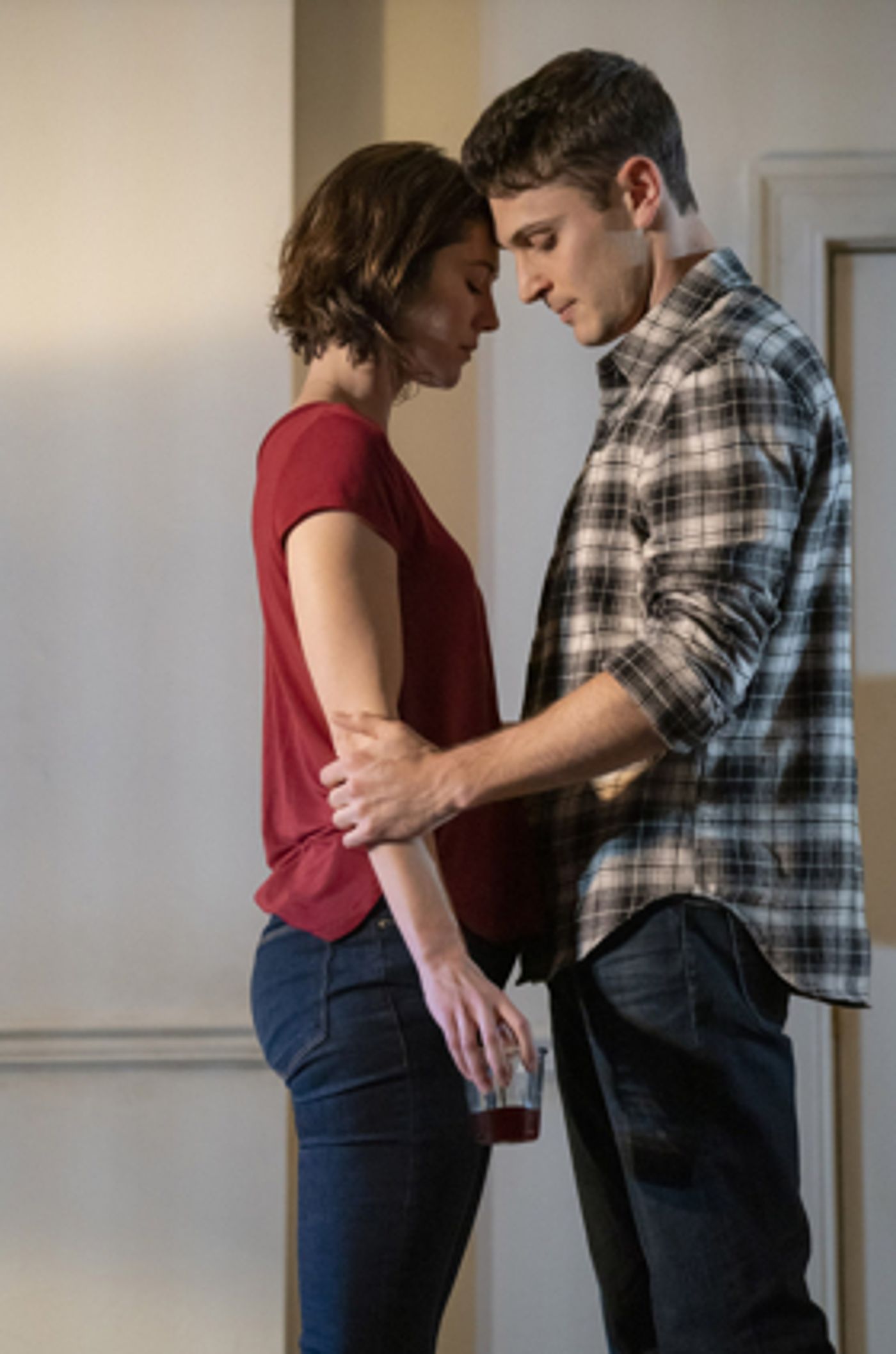Review Roundup: What Did the Critics Think of DYING CITY?

Christopher Shinn's intimate and compassionate play, Dying City, is set in a spare Manhattan apartment, where a young widow receives an unexpected visit from the twin brother of her deceased husband. Dying City explores the human fallout of global events, including the Iraq War and the terrorist attacks of 9/11, through the interwoven stories of three unforgettable characters in this 2008 Pulitzer finalist
Let's see what the critics had to say...
Michael Dale, BroadwayWorld: While there are still American troops serving in the Middle East, Dying City certainly contained more immediacy and relevance to a larger number of playgoers when first seen a dozen years ago. Shinn's production seems to settle into its own subtly a bit much and though the capable actors work hard, the results are minimal. Top-shelf director Lila Neugebauer was originally set to helm this production but bowed out to accept her first feature film assignment. One wonders if she would have found greater depths and a steadier pulse in the playwright's text.
Ben Brantley, The New York Times: The same matter-of-factness extends to the production as a whole, starting with Dane Laffrey's naturalistic set (which has the virtue of actually looking, for once, like a genuine New York starter apartment). Granted, it does have that ominous black hole where the wall should be at stage right, a place for ghosts to materialize. And Tyler Micoleau's lighting and Bray Poor's sound do have their insinuatingly sinister aspects. Ultimately, though, this "Dying City" feels less like a haunting than an exorcism. Mr. Shinn's play remains of topical urgency, speaking eloquently to the abiding traps and dangers of American manhood. But you register its points intellectually and dryly, when what you really want - and need - is to be chilled to the bone.
Frank Scheck, The Hollywood Reporter: This lifeless revival sadly demonstrates the truism that playwrights often are not the best choice to direct their own work. The 2007 Lincoln Center production at least featured an imaginative staging by James Macdonald that included a set that rotated ever so slowly, keeping the audience off-balance. Shinn (who took on directing duties after Lila Neugebauer dropped out to work on her first feature) applies no such theatrical effects in this snail-paced staging. Instead, he relies solely on the writing and the performances for dramatic impact, and the results are stultifying. The play's contrived mechanics, which include Kelly reading damning emails sent by Craig to his brother, stick out like sore thumbs.
Robert Hofler, The Wrap: Shinn has chosen to give an ominous look and sound to these scene changes, as if there's some kind of Jekyll and Hyde thing going on with Woodell's performance. At Second Stage, the New York apartment (set design by Dane Laffrey) often goes pitch black between scene changes as a broad band of light is turned on to define a frame around the proscenium. In addition to the startling lighting effect (by Tyler Micoleau), there's a rattlesnake sound design (by Bray Poor) to enhance the wow factor. All this stagecraft gives the production a sense of movement, a movement that is lacking in Mary Elizabeth Winstead's performance as Kelly. Her bio in the Playbill includes many film and TV credits but boldly announces that she is "making her theatre debut" here. (What, no theater in college or even high school?) Winstead isn't incompetent or uncomfortable on stage, and she effectively conveys her therapist character's intelligence. What's missing is any development in the character from the time Peter awkwardly enters Kelly's apartment to the time he leaves it 90 minutes later amid much emotional retribution.
Elysa Gardner, New York Stage Review: Despite Shinn's thoughtful, sensitive guidance, the staging lacks a certain dynamism. The actors, Mary Elizabeth Winstead and Colin Woodell, are attractive and intelligent, bringing compelling nuance to their characters. Woodell in particular distinguishes the brothers' shared struggles to contain heightened feelings without exaggerating either the often comical vanity that is the flip side of Peter's insecurity-"The guy trainers I've had, it's weird, I think they've all been jealous of me-my manager thinks it's because I'm so handsome," he tells Kelly at one point-or Craig's more stoical machismo, which is gradually revealed as more complex, and disturbing.
Jonathan Mandell, New York Theater: But the interaction is generally so low-key, the pace so slow, and the revelations so fleeting, that something feels missing; maybe what's missing can be called drama. This has not been a problem in other productions I've seen of Shinn's plays, especially his first, "Four." Perhaps a better director might have drawn out more compelling non-verbal interaction from the actors, both of whom are familiar faces on screen, but have little to no experience on stage. A good director could have delineated the characters more crisply, and enlivened the pace, allowing what's happening on stage both to fill in for the ellipses in the script and compensate for the patience that's required of the audience while the story unfolds.
Raven Snook, Time Out New York: Dying City requires a palpable sense of unease from the get-go; the brilliance of Shinn's script is often in what the characters don't say. But although Shinn is a hugely gifted playwright, he is an inexperienced director; the result is a middling production that feels detached from the play's insightful examination of how trauma can misshape lives.
Photo Credit: Joan Marcus
- To read more reviews, click here!
- Discuss the show on the BroadwayWorld Forum

